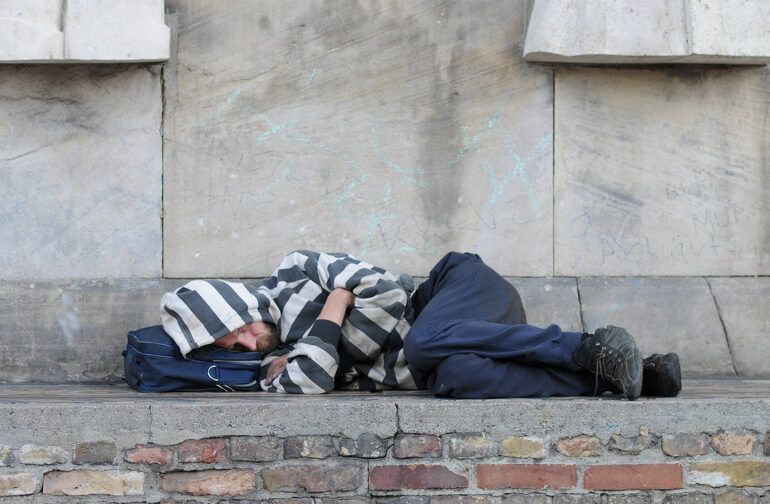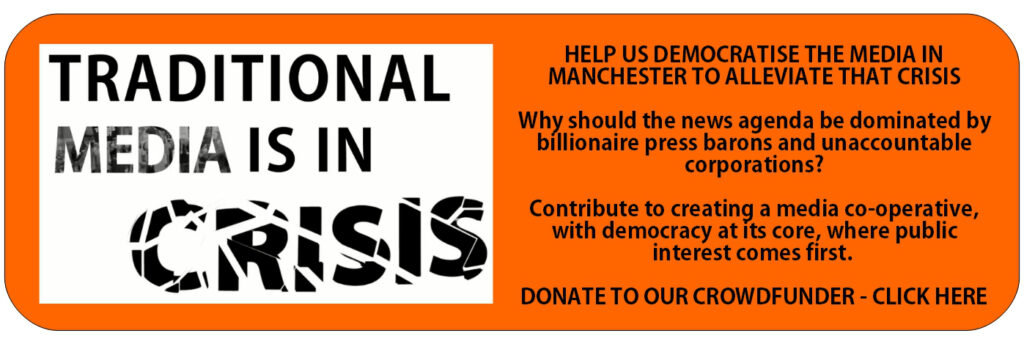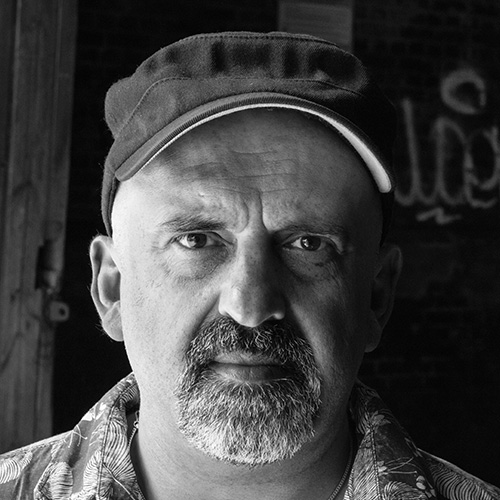The Co-operative Congress in Manchester this year saw delegates from co-ops across the UK gather to hear a key session on how to build a “fairer economy”: a topic that is close to every co-operators heart and a vital driver for people to become co-operators in the first place.
Author and journalist Oliver Bullough told those gathered at the Congress that he had been invited to speak in the “bad cop” role, talking about the dark side of the worldwide economy. He achieved this admirably, describing how globalised corruption facilitated by the offshore financial world is one of the major barriers to achieving a fairer economy.
His book, Moneyland: Why Thieves And Crooks Now Rule The World And How To Take It Back, is based on his investigations into this arena and describes a selfish, increasingly powerful, and often criminal elite occupying a meta-country (Moneyland) that spans the international borders seen on maps and floats above the rules and regulations of individual countries that ordinary mortals have to follow.

Moneyland is full of individuals with super-yachts and obscene amounts of wealth. The funds for these luxury goods are often corruptly siphoned off from their original home country, leaving their compatriots in poverty. Moneyland allows its denizens to hide the illicit nature of their wealth due to the secrecy inherent in the offshore world, de-linking the money from its original corrupt source. The offshore world and its onshore support services give the Moneylander free rein, allowing them to spend their ill-gotten gains on expensive homes in London and luxuries from Harrods without fear of reprisal.
“There are no co-ops in Moneyland”
“There are no co-ops in Moneyland”, Bullough told the co-operators gathered at the Mercure Hotel in Manchester on 22 June. He talked of his experience of moving to Russia in the late 90’s as a journalist where he had the “slightly naive expectation that I would be writing about the flowering of democracy and the spread of freedom and a new frontier… instead I ended up writing about the Chechen war, human rights abuses and the spread of kleptocracy”.
Unprecedented levels of corruption followed the breakup of the Soviet Union, which began in the late 80’s and is epitomised by the fall of the Berlin Wall in 1989. This corruption was facilitated by western governments, financial institutions, banks and, most importantly, the offshore world. Bullough told the Congress that he still finds it hard to believe that Russia is now the most unequal major economy in the world, considering that 30 years ago it was a communist country with extremely low levels of inequality.

Moneyland has no borders
Moneyland does not have a border, a flag, or an army, nor is it a conspiracy headed by some evil mastermind. Bullough describes it as a complex Steal-Hide-Spend system used by affluent people across the world, often in positions of power, who by corruption or other illegal activities steal huge amounts of money from their own countries.
They then use the tangled and secretive web of offshore jurisdictions (aka tax havens or secrecy jurisdictions) to hide this wealth and simultaneously remove the stain of the original corrupt activity from the money and its owner. The offshore system with the help of a well-established network of lawyers, accountants and banks then allows Moneylanders to spend their loot pretty much anywhere in the world.
[expand title=”TAX HAVENS, SECRECY JURISDICTIONS & OFFSHORE FINANCE – CLICK HERE TO FIND OUT MORE”]
Tax havens, secrecy jurisdictions and offshore finance are generally terms that overlap, and can be applied interchangeably to a jurisdiction (a country or a region of a country, and its laws) depending on what you are trying to emphasise.
So for example the British Overseas Territory of the British Virgin Islands (BVI) can be described as a tax haven, because a company registered there will pay no corporations tax or any other kind of tax there. It will also pay no tax on profits transferred to this company by companies or individuals in other countries such as the UK. In 2017 research showed that BVI companies control $1.5 trillion in assets. The BVI comes top of the 2019 Corporate Tax Haven Index, complied by the Tax Justice Network (TJN).
The BVI can also be described as a secrecy jurisdiction, according to the TJN, due to:
“the BVI’s lax, flexible, ask-no-questions, see-no-evil company incorporation regime, which allows owners of companies to hide behind ‘nominees’ to achieve strong secrecy, and to set up companies quickly and at low cost. This supposed ‘efficiency’ of incorporation has translated into carte blanche for BVI companies to hide and facilitate all manner of crimes and abuses worldwide.”
The secrecy provided to the ultimate owners of companies registered in the BVI has led to it becoming the world’s leading centre for company incorporation with over a million companies incorporated since 1984. In 2017, there were 417,000 companies incorporated in the BVI, two-thirds of them corporate subsidiaries.The British Virgin Islands comes in at 16 (out of 112 jurisdictions listed) in the 2018 Financial Secrecy Index compiled by TJN.
Offshore finance applies to the BVI because it is an island in the Caribbean, offshore from the UK and the many other countries where people and corporations have decided to incorporate a company or trust in the BVI. The term “offshore financial centre” (OFC) is one that the BVI uses to describe itself as it doesn’t hold the negative connotations of tax havens and secrecy jurisdiction. However many jurisdictions, such as Luxembourg and Hong Kong, that offer OFC perks such as tax avoidance and secrecy are not located on islands, although the largest users of these centres are usually from overseas, so the OFC is “offshore” to them. [/expand]
Speaking to Bullough over the phone the day before the Co-operative Congress, he described how Moneylanders live a completely different life to normal citizens of a country, and how the kleptocratic system they use extends beyond national borders:
“The vast majority of us live and operate in one country. We operate in one currency, we might go on holiday but essentially all of our affairs take place in one country. The idea that you can pick and choose what laws you obey is something that is totally alien to the vast majority of us…
“The thing about kleptocracy is that it’s inherently transnational, it doesn’t exist in only one country. Which is why it is so challenging an idea because all forms of government, whether you say democracy or autocracy or theocracy, they describe a political settlement in a single country. Whereas kleptocracy isn’t like that. The money is stolen in one country; it’s hidden in a second country; it’s spent in a third country.”
Steal-Hide-Spend is the sequence of events that underpins Moneyland. It is extremely profitable for those involved, and places a huge strain on the lives of those left behind and the economies of the countries affected. The secrecy inherent in the offshore system which is essential to hiding this money and de-linking it from the original nefarious activity makes it difficult to put an exact figure on the amount of money hidden there.
Globalised corruption on a huge scale
French economist Gabriel Zucman is cited in the book as estimating that 8% of the world’s financial wealth ($7.6 trillion of a total of $95.5 trillion) was held in tax havens in 2014. If all the non-financial assets (such as houses, cars, yachts etc) were added, he estimated another $2 trillion could be added to that figure.
Bullough contends that Moneyland helps feed increasing inequality across the globe. According to Wealth-X in 2016 there were 226,450 ultra-high net worth people (a 3.5% rise on the year before) with assets of over $30 million each. Their collective wealth had increased over the last year by 1.5% to $27 trillion. This was just below the combined economic output of the United States and China ($29.81 trillion) in 2016.

In the ten years since the year 2000, the richest 1% of the worlds population increased its wealth from one third of everything to half of everything. Bullough believes increases like this are partly driven by corruption in countries like Ukraine and Russia, but that money makes it way around the globe to wherever the Moneylanders want to spend it:
“What is alarming I think from a British perspective and is so dispiriting about it is so much of the money that is stolen from places like Ukraine and Russia ends up here. It doesn’t stay offshore: it ends up buying luxury property in West London, or in Surrey or here in fact in Manchester. London is very much the capital of Moneyland … and we have always been deeply implicated in the movement of this money.”
Ukraine consumed by corruption
The corruption and profiteering that consumed the post-Soviet states after the break up of the Soviet Union plays a large part in the book. A prime example given is the story of Victor Yanukovich, president of Ukraine from February 2010 to February 2014.
During that time he became fabulously wealthy while impoverishing his country, aided by the advice of Paul Manafort who went on to advise Donald Trump in his run for the presidency of the USA. In March this year, Manafort was sentenced to seven and a half years in prison for money laundering and unregistered lobbying. The judge was reported to have rebuked Manafort for the “web of deceit he spun to earn millions of dollars lobbying for pro-Russia politicians in Ukraine.”
Yanukovich built a sumptuous palace for himself while living off a state salary. The extent of his excessive corruption was only revealed after the Orange Revolution, when the people got to see the inside of his palace grounds which included a golf course, water gardens, an enclosure for shooting wild boars and a nouveau Greek temple. Bullough describes the inside of the palace as a “temple of tastelessness, the epitome of excess”, containing piles of gold candlesticks, walls full of presidential portraits and a large collection of ostentatious and expensive presents given to the president by officials to ensure they could continue to skim off the top of their budgets with impunity.
Yanukovich fled to exile in Russia in February 2014, assisted by Russian troops. But that wasn’t the end of the corruption in Ukraine, because the whole system had become corrupted: Yanukovich just sat at the top of the pyramid and maintaining his position meant corrupting those below him.
That corruption has spread through the healthcare system in Ukraine. The country’s constitution guarantees its citizens free healthcare, but in Ukraine patients have to pay for everything. Budgets for hospitals don’t cover the costs of paying the doctors a decent wage or keeping equipment working, meaning the patients themselves end up paying the price.

Bullough tells of people he knew like Nina and her 7-year-old daughter Nonna, who has haemophilia and needs injections of a clotting factor to control bleeding. Nonna risks bleeding to death if the clotting factor is not injected, but due to the endemic corruption that bled Ukraine’s hospitals dry, the clotting factor is often not available. Nina has to live with the stress of knowing that her daughter is one cut away from death and resorts to the black market to provide the drugs she needs.
Fleeing Ukraine, Yanukovich and his minions attempted to destroy evidence of his corruption by dumping documents in the Dnieper River. Some were retrieved and showed Yanukovich had hidden his ownership of coal mines in companies registered on the island of Nevis in the Caribbean.
Russian corruption goes straight to the top
One particularly revealing case occurred in Russia in 1999. The Prosecutor General Yuri Skuratov was investigating a corruption case that threatened to expose the whole pyramid including Boris Yeltsin at the top. Skuratov had discovered that the Central Bank had funnelled $37.6 billion, 9.98 billion deutschmarks, ¥379.9 billion, 11.98 billion French francs and £862.6 million into a little known offshore shell company registered in Jersey called FIMACO. Most of the money had originated from International Monetary Fund loans.
When Skuratov accused the central bankers of using profits from trades made with this money to fund lavish lifestyles while hiding the details from the government and also told certain members of Russia’s parliament about this, the response was, according to Skuratov, a blackmail attempt. When he refused to back down, the state-owned RTR television station broadcast grainy footage of him cavorting naked with two much younger naked women.
The man in charge of the FSB, formerly the KGB, during the Skuratov tape scandal was Vladimir Putin. Many suspect the FSB were responsible for passing the tape to Russian Television. Skuratov was suspended then sacked. Putin won the presidency of Russia in 2000.
Eventually after much international pressure, the Central Bank’s chairman admitted that FIMACO was used to hide assets from its creditors, including the IMF; however, a fully independent official investigation was never carried out, and the full extent of the skimming was never determined.
None of the individuals criticised by Skuratov was investigated. Bullough cites a Spanish banker, Felipe Turover, who advised the Russian government on debt deals and who implied that Putin had done particularly well for himself from similar scams to FIMACO, due to his control of Russia’s property portfolio via his role at the Kremlin.
Moneyland depends on the UK for its success
Most people in the UK perceive corruption as a problem for overseas developing countries or less well-established democracies. Bullough is persuasive on the major role the UK plays in enabling Moneyland and its corruption. The next part of this story (which will be published on 13 August) will highlight the UK’s central role, and discuss how Moneyland suppresses freedom of the press and subverts our democracy. The implications for the citizens of the UK, with a particular focus on Manchester, of allowing the excesses of Moneyland to continue are also covered and Bulloughs explains what we need to do to take the world back from the thieves and crooks who now rule it.
Conrad Bower
For part two of this story – click here
This article is part of the ‘Co-operative Manchester‘ series. Exploring the past present and future of co-ops in the city
Feature image: composite with cover of Moneyland central



Leave a Reply